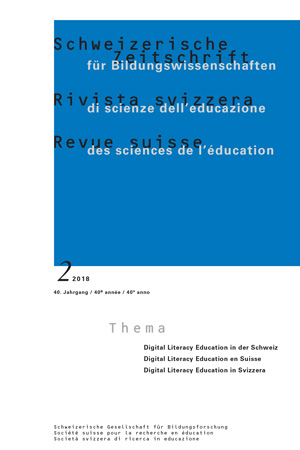The Internet as a source of information for making a career choice: how young people use it, and how useful they are at evaluating the information they receive
DOI:
https://doi.org/10.24452/sjer.40.2.5065Keywords:
Transition to VET-Education, knowledge for career choice, IT-CompetenceAbstract
This study is concerned with the relation between the way learners use online searches on the internet to gain new knowledge about choosing a profession, and the degree to which learners estimate these searches to be useful for them. Data were gathered in Switzerland in 2013 the context of the International Computer and Information Literacy study (IEA ICIL). The sample of N = 1606 learners showed that a goal-oriented search for information was significantly related to learners’ sense of usefulness while building up new knowledge. By contrast, the following factors proved to be less important concerning learners’ own sense of usefulness: skills for using the internet taught at school, skills for using the internet acquired in learners’ leisure time, and conversations with parents or teachers. In this study, we discuss these findings in the context of value expectancy theory and discuss their relevance concerning learners’ choice of future profession, as well as the subject of computer-studies in school.
Downloads
Downloads
Published
Issue
Section
License
Copyright (c) 2018 Albert Düggeli, Katja Kinder, Wolfgang Kandzia

This work is licensed under a Creative Commons Attribution 4.0 International License.



